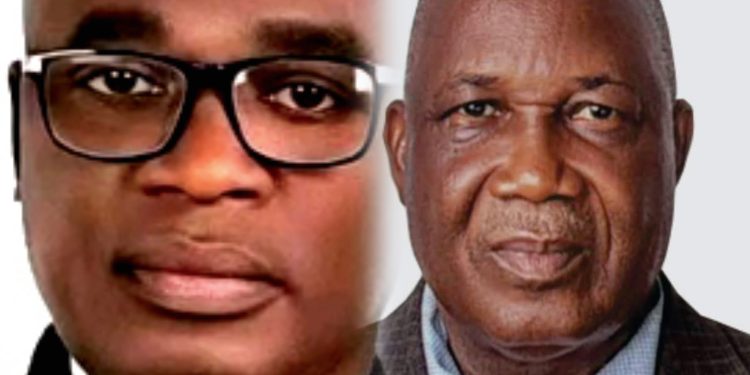The Executive Governor of Benue State, Rev. Fr. Dr. Hyacinth Iormem Alia, has reaffirmed his administration’s firm commitment to strengthening multi-sectoral coordination as a core strategy to improve service delivery, optimize resources, and ensure that all interventions meet the real needs of the people.
This commitment was showcased today at a high-level meeting of the Benue State Multi-Sector Coordination Platform, convened by the Bureau for International Cooperation and Development (BICD) at the BICD Conference Room, Government House, Makurdi, under the theme “Strengthening the Benue State Multi-Sector Coordination Platform for Sustainable Impact.”
Speaking on behalf of the Governor, the Chief of Staff, Chief Moses Atagher, declared the meeting open, noting that the Governor’s vision is to institutionalize government-led coordination as the standard for all partnerships in the state. He commended the BICD, under the leadership of Dr. Aondoaseer Leonard-Angelo Viashima, for its central role in aligning multi-sectoral interventions with the state’s priorities and fostering meaningful engagement between government and partners.
Representing the Secretary to the State Government, Mr. James Azande, Senior Special Assistant on Media in the Cabinet Office, emphasized the Governor’s directive for ministries, departments, agencies, and partners to work within the state-led coordination platform to achieve unity of purpose, avoid duplication, and ensure measurable results.
The meeting brought together a distinguished line-up of participants, including the Country Director of the Nigerian INGO Forum, Ms. Carmilla Higgins, and her delegation; heads of UN Agencies and offices active in Benue State, such as WHO, IOM, UNFPA, UNHCR, and UNDP; the Principal Private Secretary to the Governor, Dr. Emmanuel Chenge; the Director General of the Benue State Commission for Peace and Reconciliation, Mrs. Josephine Habba; the Director General of the Benue State SDGs Office, Chief John Akuse; the Director General of the Benue State Economic and Planning Commission, Prof. Jerome Andohol; the Director General of the Benue State Social Investment Project, Chief Mrs. Erdoo Iyo; and Permanent Secretaries of the Ministries of Humanitarian Affairs and Disaster Management, Education, Health, Women Affairs and Social Welfare, Power and Renewable Energy, Works, Housing and Urban Development, Water Resources, Environment and Climate Change, and Agriculture and Food Security.
The day’s programme featured detailed updates from the BICD Technical Team on ongoing coordination efforts, partner registration compliance, and sector cluster designations, followed by a presentation from the Nigerian INGO Forum on gap mapping and opportunities for improved collaboration.
A major highlight was the roundtable session, where MDAs and UN agencies presented their mid-year achievements, sharing updates on projects funded through grants, donations, and development programmes. These ranged from infrastructure upgrades, healthcare delivery, and educational initiatives to agriculture support, peacebuilding actions, and renewable energy deployment. Each presentation was followed by constructive reviews and feedback aimed at improving the impact, reach, and sustainability of interventions for the benefit of the people of Benue.
The interactive Q&A session generated practical ideas for overcoming coordination challenges and reinforced the shared commitment to transparency, accountability, and delivering measurable results.
In his closing remarks, Dr. Aondoaseer Leonard-Angelo Viashima, Director General of BICD, expressed appreciation to all partners for their continued support and collaboration. He particularly acknowledged the contributions of partners whose technical and logistical assistance helped make the convening possible, particlarly WHO and Nigeria INGO Forum – NIF, noting that such support reflects the spirit of shared responsibility at the heart of multi-sectoral coordination.
The meeting concluded with clear next steps, including operationalizing sector working groups, launching enhanced coordination tools, and convening a joint review session in the fourth quarter of 2025.
Governor Alia, through his representatives, assured all stakeholders of his administration’s continued political leadership over the coordination process, its dedication to state ownership of partnerships, and its resolve to create an enabling environment for multi-sectoral action that delivers lasting benefits to communities across Benue State.














